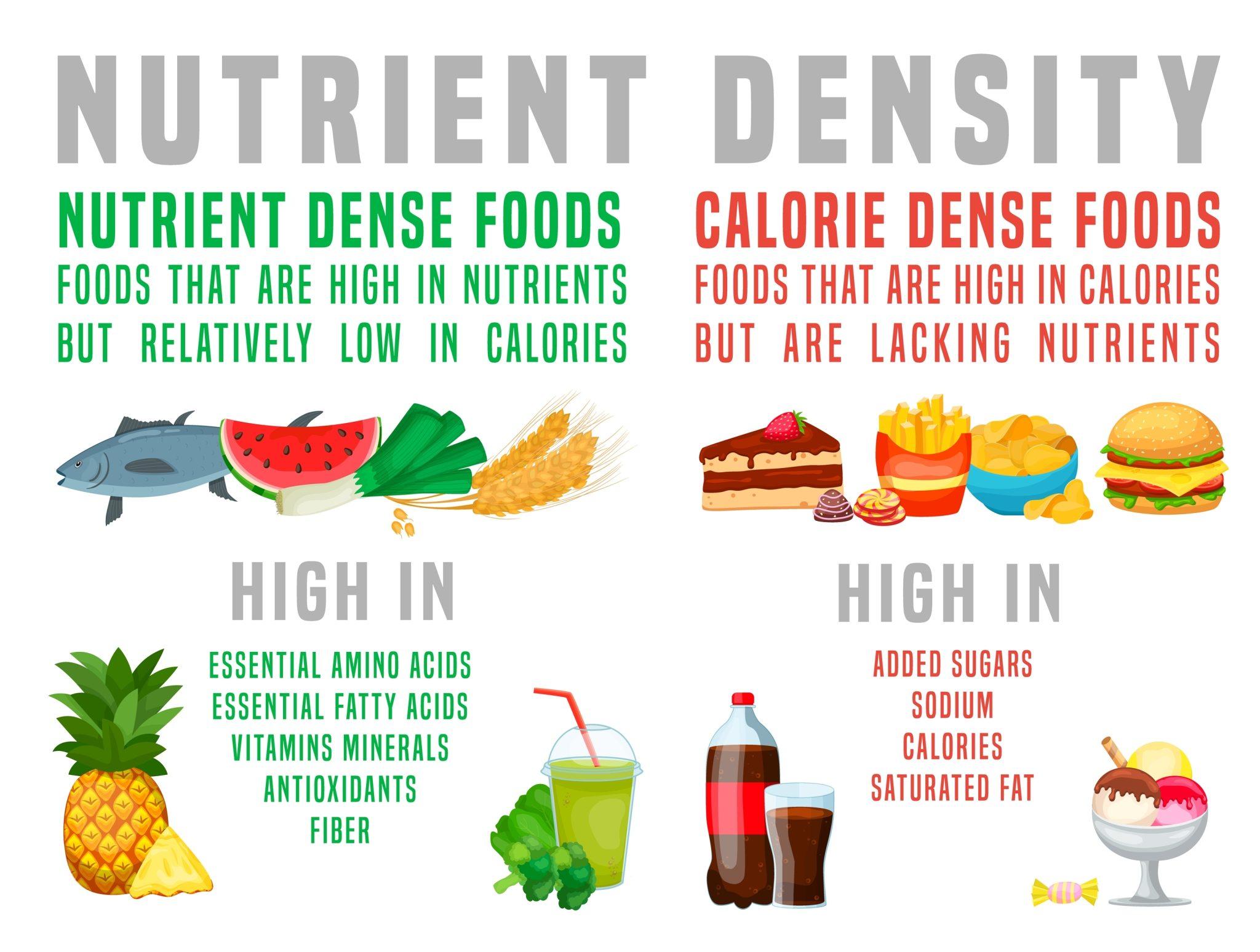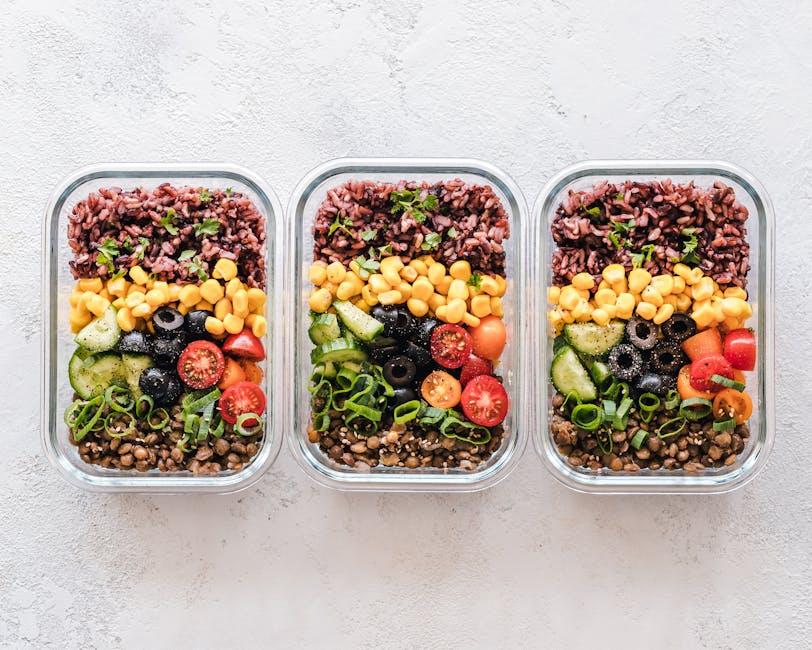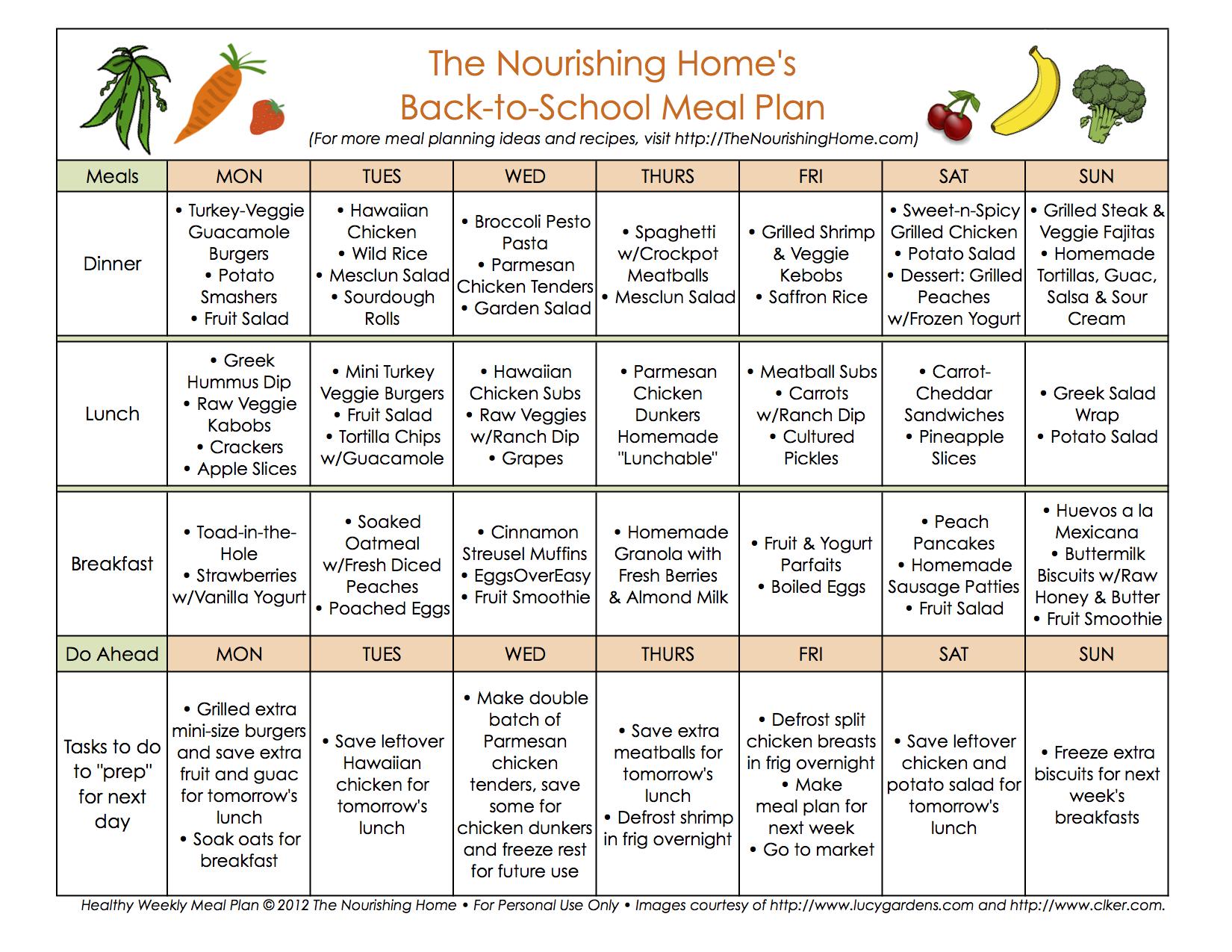In the fast-paced world we live in, maintaining consistent energy levels throughout the day can feel like an elusive goal. Many of us find ourselves in a cycle of energy spikes and crashes, driven by the foods we consume. The good news is that with strategic meal planning, you can break this cycle and sustain your vitality from morning to night. This article will guide you through the essentials of crafting meals that not only satisfy your taste buds but also fuel your body with the steady energy it craves. By understanding the principles of balanced nutrition and making mindful choices, you can transform your eating habits and unlock a new level of sustained energy. Prepare to embark on a journey towards a more energized and productive you, as we explore practical strategies and tips for meal planning that will keep your energy levels consistent and reliable.
Understanding Your Energy Needs
To maintain steady energy throughout the day, it’s essential to understand how different foods affect your body’s performance. Begin by recognizing the importance of macronutrients in your diet. Carbohydrates are your body’s primary energy source, but not all carbs are created equal. Opt for complex carbohydrates such as whole grains, legumes, and vegetables that release energy slowly. Proteins play a crucial role in sustaining energy levels by keeping you full longer and supporting muscle repair. Lean sources like chicken, fish, and plant-based proteins should be staples in your meal planning. Fats, especially healthy fats from avocados, nuts, and olive oil, provide long-lasting energy and aid in nutrient absorption.
- Eat Balanced Meals: Aim for meals that combine all three macronutrients to promote sustained energy release.
- Focus on Timing: Distribute your meals evenly throughout the day to avoid energy crashes.
- Stay Hydrated: Dehydration can lead to fatigue, so ensure you’re drinking plenty of water.
- Monitor Portions: Eating too much or too little can both lead to energy imbalances. Find a portion size that suits your energy needs.
Crafting a Balanced Meal Plan
To maintain consistent energy levels throughout the day, it’s essential to focus on creating meals that are balanced in nutrients and tailored to your lifestyle. A well-rounded meal plan should include a variety of macronutrients and micronutrients to fuel your body effectively. Prioritize complex carbohydrates like whole grains, quinoa, and sweet potatoes, as they provide a steady release of energy. Pair these with lean proteins such as chicken, tofu, or legumes to support muscle repair and growth.
- Include Healthy Fats: Incorporate sources like avocados, nuts, and olive oil to help with satiety and brain function.
- Colorful Vegetables: Add a variety of vegetables to each meal to ensure you’re getting essential vitamins and minerals.
- Hydration: Don’t forget to stay hydrated with water or herbal teas, as dehydration can lead to fatigue.
- Mindful Snacking: Opt for snacks like yogurt, fruits, or a handful of almonds to keep energy levels stable between meals.

Incorporating Nutrient-Dense Foods
To maintain consistent energy levels throughout the day, it’s essential to focus on foods that are rich in nutrients, providing your body with the fuel it needs without unnecessary additives. Nutrient-dense foods are packed with vitamins, minerals, and other beneficial compounds that can help stabilize blood sugar levels and prevent energy crashes. Consider integrating these powerhouse foods into your daily meals:
- Whole Grains: Foods like quinoa, brown rice, and oats are excellent sources of complex carbohydrates, which provide a steady release of energy.
- Leafy Greens: Spinach, kale, and Swiss chard are not only rich in iron but also contain magnesium and vitamin C, which are crucial for energy production.
- Lean Proteins: Chicken, fish, and plant-based proteins like lentils and chickpeas can keep you full longer and help maintain muscle mass, which is vital for a sustained energy boost.
- Nuts and Seeds: Almonds, chia seeds, and flaxseeds offer a mix of healthy fats, fiber, and protein, providing a balanced source of energy.
- Colorful Fruits: Berries, oranges, and apples are not only delicious but also high in antioxidants, which combat fatigue and support overall health.
Incorporating these foods into your meals can make a significant difference in your energy levels, helping you to stay focused and productive throughout the day. Embrace the vibrant variety of these ingredients to enhance both the nutritional value and flavor of your dishes.
Optimizing Meal Timing for Sustained Energy
To maintain steady energy throughout the day, it’s crucial to strategically time your meals. Start by prioritizing breakfast—a well-rounded morning meal can jumpstart your metabolism and set the tone for your energy levels. Opt for a mix of proteins, healthy fats, and complex carbohydrates to fuel your morning. Think of options like oatmeal with nuts and berries or a whole-grain toast with avocado and eggs. Ensuring that your first meal of the day is nutrient-rich can prevent mid-morning slumps.
As the day progresses, aim for balanced meals and snacks every 3 to 4 hours. This helps keep your blood sugar levels stable and avoids the energy dips that often lead to reaching for quick, unhealthy fixes. Here are some ideas for maintaining energy levels:
- Mid-Morning Snack: Greek yogurt with a sprinkle of granola or a handful of almonds.
- Lunch: Grilled chicken or tofu salad with a variety of colorful veggies and a side of quinoa.
- Afternoon Snack: A piece of fruit with a spoonful of nut butter or hummus with carrot sticks.
- Dinner: Baked salmon with steamed broccoli and sweet potato.
By spacing out your meals and snacks with the right nutrients, you’ll maintain a consistent energy flow, enabling you to tackle daily tasks with vigor and vitality.




